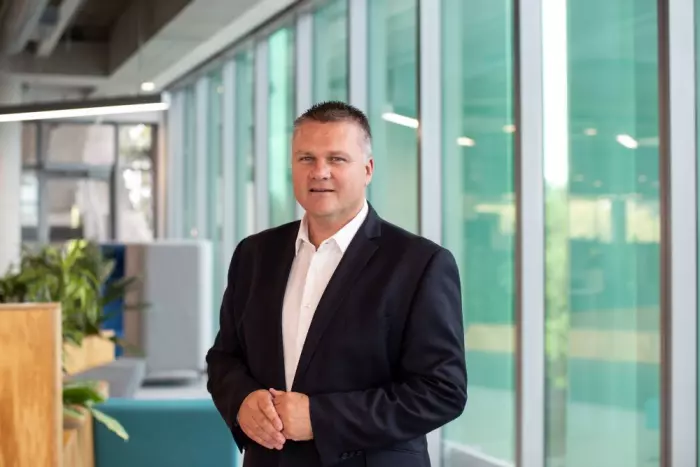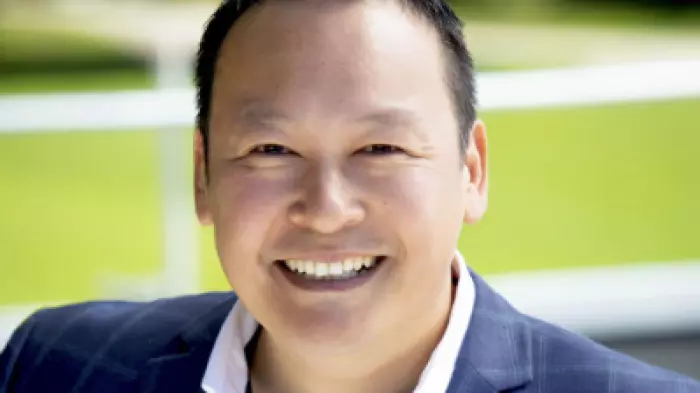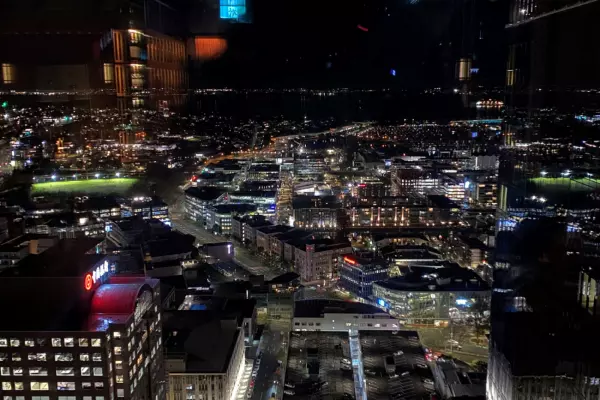Miles Hurrell joined Fonterra in 2000 and worked in dairy across Europe, the United States, the Middle East, Africa and Russia, before being appointed chief executive officer, initially in an acting capacity, in 2018. He has studied with the INSEAD international executive development university, the London Business School, the Kellogg School of Management at Northwestern University in Chicago, and the International Institute for Management Development in Lausanne, Switzerland.
I predominantly grew up in Christchurch, but I also spent a little bit of time in Wellington as a youngster. I’ve still got a house in Wellington. My father was a banker. He worked for one company and retired with that company. My mother kept the family going. My parents separated when I was young and I was brought up largely by my mother. I think the hard work by my mother is probably the thing that shone out for me.
My first career role was at a freight shipping company. I ended up having some involvement with the New Zealand Dairy Board, and an opening came to move from the shipping side to working for the board. I moved across in 2000, before Fonterra was formed. I’ve been at Fonterra for 20 years and I’ve had a number of different roles across the cooperative. While I’m not off the farm, when you work 20 years for a cooperative you certainly get exposed to how things go on the farm.
I did two stints in the Middle East. I worked in Bahrain in the early days and then I came back to Dubai later. I also worked in Germany and the US. When I was based in the Middle East and then in Europe, I oversaw our Russian office at the time and our African operations as well. I was more on a plane than not during those times. Then I was asked to come back and head up [rural supplies and farmer-support and advisory service] Farm Source. They felt at the time that our shareholders needed a stronger link into what was going in our international markets.
A cooperative is a unique model, in the way it operates and the way I work. It is not a passive investment for people who are part of the cooperative. Predominantly, 100 percent of their income comes from decisions that are made around the boardroom table, and by the executive. To understand that sounds easy. My time, my five years sitting across the coffee table or at the dinner table with farmers, hearing what’s on their minds and where they see their business going, there’s no question in my mind that was instrumental in giving me the opportunity to take on this current role.
My biggest business achievement is probably going to be a bit clichéd. It is the way that our team has really come together through covid. You know, we were sitting here a year ago with an outbreak of what appeared to be a flu in Wuhan and wondering what this would mean from a global perspective and things very quickly spiralled into all sorts of scenarios.
The way that our teams responded – and when I say “teams”, that includes our farmers and all our people around the world – is something that is quite impressive.
I was talking to our head of Europe/Middle East this morning. He hasn’t really been out of the basement of his house coming up on nine, 10 months. It is a terrible situation that we're still dealing with, but the way our business has come together and stepped up to being an essential service, I’m proud of that.
My biggest business regret? It’s a hard question, but you don’t get to be a senior leader in any business without having a few trip-ups on the way. I was in Egypt in January 2011 when Tahrir Square [the Egyptian Revolution] went down and I was there doing business. We had to escape after the curfew late at night and try to get out of the country. And I look back now as the chief executive of Fonterra thinking I wouldn’t be pleased to hear my staff doing that now. Clearly things have moved on and your life changes, your perspectives change. You think you are doing the right thing at the time. In hindsight, it wasn’t a very safe place to be for a period.
Having a seven-year-old helps me balance life and work. You have no choice. He doesn’t care what board meeting or what meeting I may have down in Wellington. As far as he’s concerned, he’s number one in the world and that changes things. I get my mind out of work very quickly when he’s around.
I hit the pavement, do a bit of running, from time to time. It's always an opportunity to reflect a little bit and I talk to people in our offshore markets when I’m walking up the hills. I wouldn’t say I’m an athlete, but I do enjoy putting on the runners three or four times a week if I can.
My best piece of business advice is that there is good in everyone, somewhere. A good leader can get the good out of people. I’m not saying that every day is a perfect day in the office, far from it, but people by and large come to work to do their best every day. It’s about trying to tap into that. I try and live by that quite a bit.
The biggest influence on my career is my wife. We’ve been married 18 years now. She effectively gave up her career to support me in my career offshore. She has supported me all the way through. She’s been a rock through everything.
I don’t really have a favourite place in New Zealand to travel. I wouldn’t trade in the 10 years I was offshore and all the countries I visited but we live in paradise back here. It’s pretty hard to pinpoint one place when you live in a pretty special country. Whether I’m in a rural town to see a couple of farmers or skiing in Queenstown, for me, it’s all pretty special.
The hardest business lesson I’ve learned is not to waste valuable energy on trying to change the mind of someone that is set. People have views and that’s great. Diverse thinking is always helpful, but to try to spend energy to make people see otherwise can be fruitless.
My ambition is to set Fonterra up for success for the next 150 years. Clearly, we needed to reset our business and get it on the right track that all New Zealanders can be proud of, and I’d like to think that we are making some progress towards that. But how do we look beyond the here and now? We are a highly capital-intensive business and when we put in a factory, it may last 30, 40 or 50 years. The decisions we make are long-lasting and we certainly need to be looking beyond five and 10 years. What is the long-term vision? How we set ourselves up for success in the long term is something I want to start putting some thought into.
The most valuable thing I possess is freedom, and the last thing I splurged on was a generator for our camper van, to go off the grid a bit. Not that we have. We went to the Hahei campground for Auckland Anniversary Weekend, if that’s off grid. It was paradise, regardless.
My favourite place to have lunch is with my mum, who lives not far from Christchurch Airport, so I'm lucky enough to be able to nip in there from time to time when travelling. It’s always a nice place to go and have a good catch-up with her. She tries to bring out something nostalgic from the past like a bacon-and-egg pie, or if she’s feeling generous, maybe a whitebait fritter. But it’s generally a piece of toast. It’s more about the conversation and the company.
As told to Rebecca Howard.
This interview has been edited for clarity.









